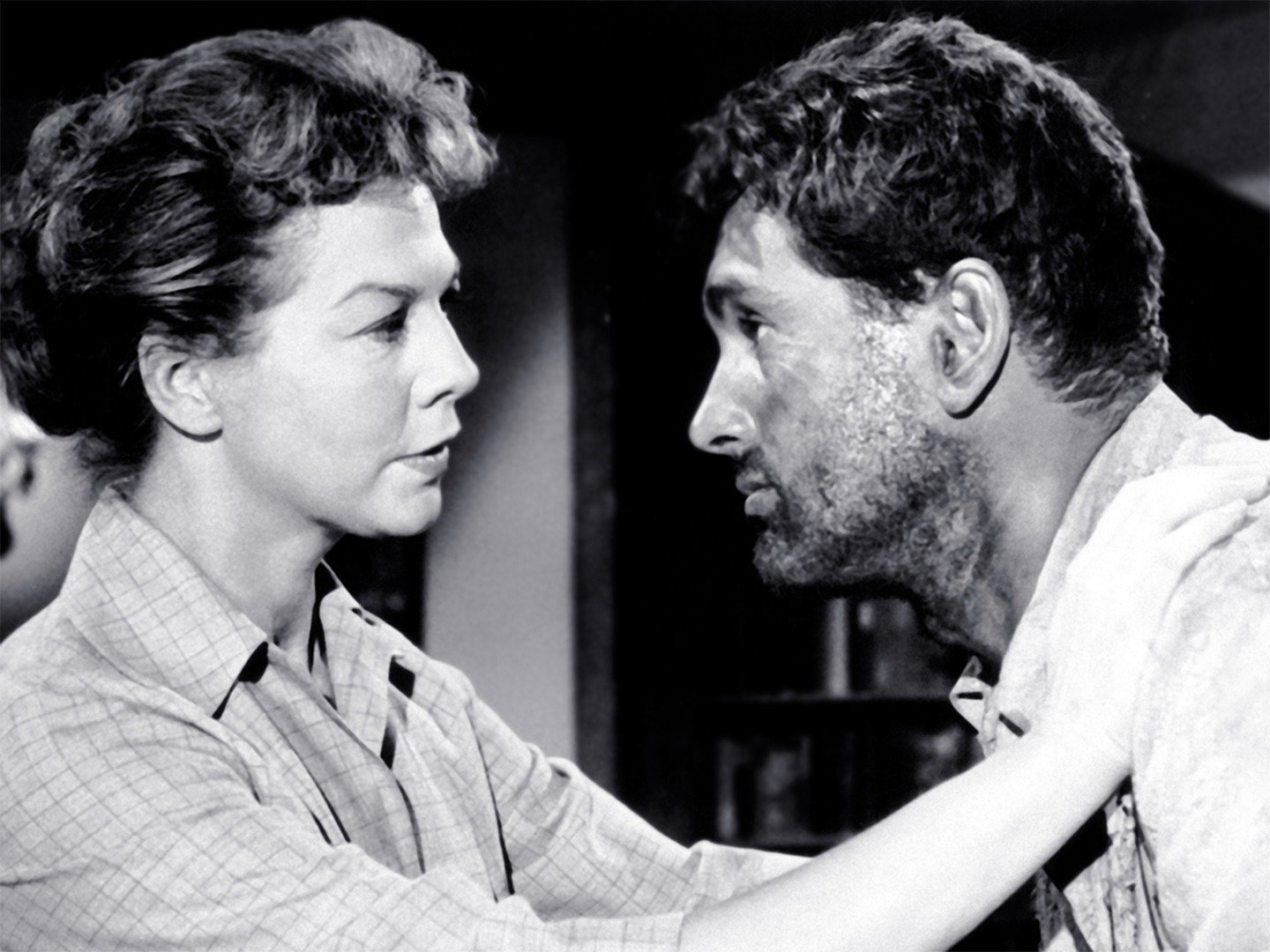
SOMETHING OF VALUE
(director/writer: Richard Brooks; screenwriter: from the book by Robert C. Ruark/; cinematographer: Russell Harlan; editor: Ferris Webster; music: Miklos Rozsa; cast: Rock Hudson (Peter McKenzie), Sidney Poitier (Kimani), Juano Hernandez (Njogu), Robert Beatty (Jeff Newton), Walter Fitzgerald (Henry McKenzie), Wendy Hiller (Elizabeth McKenzie), Dana Wynter (Holly Keith), Ken Renard (Karanja, Father of Kimani), Michael Pate (Joe Matson); Runtime: 113; MPAA Rating: NR; producer: Pandro S. Berman; MGM; 1957)
“As drama not much in value.”
Reviewed by Dennis Schwartz
Winston Churchill is quoted in the closing credits: “The problems of East Africa, are the problems of the world.” Churchill’s filmed response in the prologue was scratched due to poor responses to his brief talk by a bored test audience. Richard Brooks’ well-intentioned liberal response to the racial upheaval in the East Africa of the 1950s is a tedious and unconvincing attempt to offer a voice of moderation and a call for tolerance. Based on Robert Ruark’s popular novel about the violent Mau Mau uprising in Kenya against the white settlers, the black and white film never gets past its carefully orchestrated set pieces (blacks are shown as superstitious and unable to change, whites as racists who are unable to change). Also, it had an artificial look due to most of it filmed on the studio back lots (except for the police station riot at Naivasha Police Station (taken from a real incident), which wasn’t filmed there but in a designed set of the police station made in the industrial area of Nairobi).
The film opens with the statement: When we take away the customs, culture and religion of a people, we better replace it with “something of value.”
White British colonist Peter McKenzie (Rock Hudson), after his mother’s death, was raised in Kenya by the black family of Karanja, who works as head man on his ranch. Peter played as brothers with their black son Kimani (Sidney Poitier). But things change as adults. While hunting a lion together, Kimani wants to fire the rifle. Racist colonist Jeff Newton (Robert Beatty) interferes by slapping him across the face for such boldness and to teach him a lesson to know his place. Kimani runs away from the white folks to ingratiate himself with the rebels in the hills, who are led by Njogu (Juano Hernandez)–aiming to kick all Europeans out his country.
When Kimani’s father, following his traditional customs, smothers his new-born child to death because the tribal witch doctor says the child was born feet first and therefore is cursed and must be sacrificed to be rid of the curse, Peter’s sister Elizabeth (Wendy Hiller) reports him to the authorities and they put the simcere Karanja on trial for murder. Karanja is convicted and sentenced to die by decree of a white law he does not understand, as according to his traditions he was only following its laws.
Poitier as a Mau Mau says such things as “I want my own land.” To get his own land, he learns how to steal guns and must go along with others who kill white settlers. After much slaughter of the whites and starvation of the blacks, a peace deal is brokered between Kimani and Peter to be agreed to shortly if their members agree. Peter goes back home to confer with the white leaders and find his girlfriend Holly (Dana Wynter) and tell her the good news, but she cleared out due to the dangerous situation. When Peter returns to meet the blacks to sign the peace deal, he finds bug-eyed racist white settler Joe Matson already there engaged in a shootout with the black peace delegation. Kimani’s wife gets killed and a severely wounded Kimani is symbolically carried on his back by Peter. The film concludes with Kimani’s death and Peter adopting Kimani’s son to be raised by his sister Elizabeth with her white son. Rock says he hopes this new generation will learn to live together in peace and learn not to be biased.
I’ve got no kick with its earnest message, but as drama it had not much in value.
REVIEWED ON 5/6/2005 GRADE: C